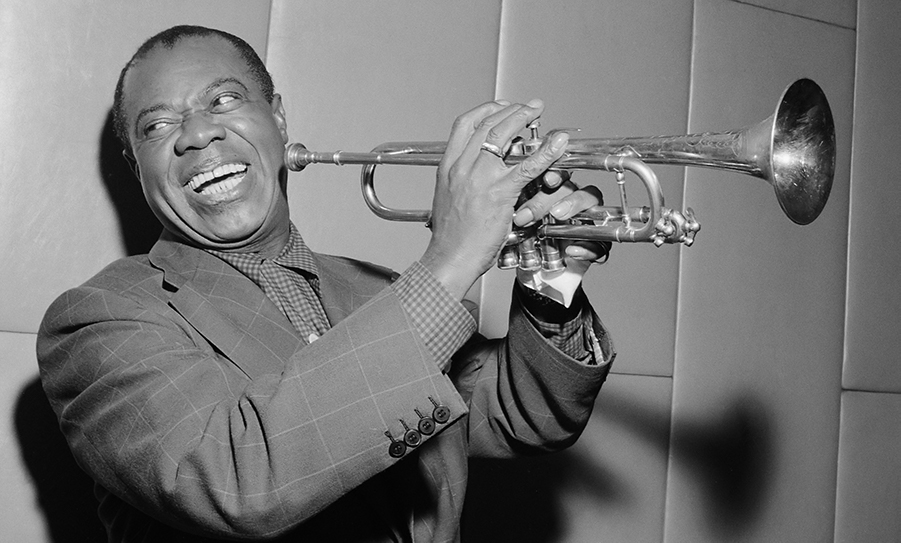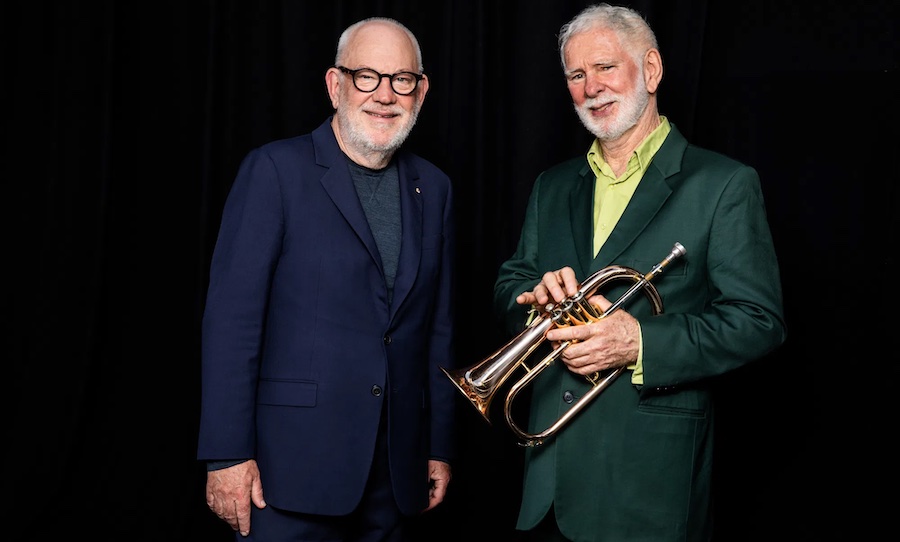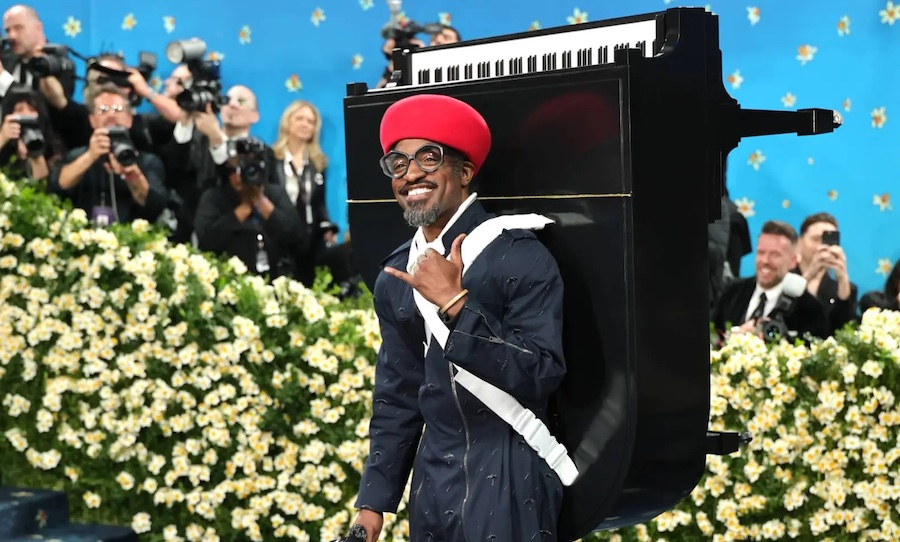Legacy is a fragile thing these days. When our time is up, we leave behind two very defining monuments; what we have created and the memories we have made. While art speaks for itself, our narratives will ultimately be left in the hands of those around us, whether for good or for bad.
Here lies our issue, anyone can be remembered but only the most exceptional can leave a legacy; the ability to create something so extraordinary that people still remember you decades later. Renowned poet Maya Angelou said it best: “if you’re going to live, leave a legacy. Make a mark on the world that can’t be erased.” Throughout his four-decade career, Louis Armstrong did just that.
Some remember him as “the single most important person in the history of jazz,” others remember him as the founding father of music as we know it. Beloved by the world around, the New Orleans trumpeter defined the industry in his memory, casting it into a realm of sonic beauty and richness that no-one had seen before. He brought personality to the forefront of music, gave melody an individuality, and crafted songs dripping with the lush intonations that speak volumes today.
Yet, on top of this, Armstrong was able to rise to greatness in a society that waited to see him fail. Amidst the criticism and tragedy which marked his career, the jazz pioneer forged a career that would transcend the generations through its dynamism and virtuosity. If ever there were someone qualified to boast a legacy, it would be Louis Armstrong.

Charisma, nerve, and, technical brilliance. Throughout his four-decade career, Louis Armstrong forged the framework of music as we know it today. We take a look back at his unparalleled career.
Born on August 4th 1901, Louis “Satchmo” Armstrong spent his entire childhood defying the odds. From his upbringing in a town so violent that it garnered the nickname “The Battlefield”, to his arrest after shooting his step-father’s gun, the young artist had witnessed all of life’s horrors before the age of 11. However, when forced into social services following his run-in with authorities, Armstrong found refuge in the orphanage’s brass band.
The raw energy and passion of jazz exuded a freedom that was nothing like he had seen before. Raised in the deep South during the time of Jim Crow laws and rampant racial violence, Armstrong had always longed for an outlet, a moment’s respite from his surroundings: jazz provided that for him.
Throughout his teen years, the artist would be taught the ways of the cornet by the orphanage’s bandleader, become a fixture in New Orleans’ dive bar and honkey-tonk scenes, and slowly develop into one of the most refined and inventive performers jazz has ever seen. His charisma and skill for improvisation shifted the genre’s once ensemblic focus toward soloist territory, allowing deeper technical skills to shine through. While the classical greats prove that this was nothing new to music, Armstrong brought it into a new light as the first musician in history to play an improvised solo on record.
“It is rare that you find technical excellence, superb artistry and irresistible charisma in one performer. Louis Armstrong had all those qualities,” the Rock & Roll Hall of Fame described Armstrong during his 1990 induction. “As an architect of jazz and a vocal trendsetter, Louis Armstrong left an indelible mark on music as an art form.”
By the age of 21, mentor Joe “King” Oliver had invited Armstrong to join his Creole Jazz Band in Chicago, introducing him to industry greats Bix Beiderbecke, Hoagy Carmichael, and Lil Hardin. From here, the Louisiana brass player would rise from an undiscovered prodigy into the genius we know of today.
Louis Armstrong was more than just a brilliant trumpeter, his melodic and rhythmic sensitivity chartered jazz into another dimension. Where the genre had previously boasted linear, uniform progressions, he blended intonation, blues design, and an unmistakable vibrancy. Armstrong unwound these melodic constraints and relaxed the rhythm to usher in a new generation of the genre; swing. The driving 4/4 beat pioneered by the artist would go on to create the framework for blues, which would lead to rock ‘n’ roll, all leading to today’s hip-hop. The 20th and 21st centuries of music vastly attributed to the ingenuity of one man.
“You know you can’t play anything on a horn that Louis hasn’t played — I mean even modern (stuff),” jazz legend Miles Davis once cited of Armstrong.
Naturally, the rest of the jazz world followed along the path Armstrong had forged, with American trumpeter Scotty Barnhart even arguing that Joe Henderson’s writers would take heavy notes from the artist. Despite his vibrant sonic, however, each of Armstrong’s songs is weighed down by an undisclosed sentimentality. Whether this was the tales of love unwound in his lyrics, his past emerging in reflections, or something deeper, each song is deeply compelling in the most nonchalant way.
None speak to this more than his biggest track What A Wonderful World. It’s a song that could have very well invented the word bittersweet. His lyrics sing of the beautiful, simple things in life, finding beauty in the everyday. We begin with instrumental swells all bound together by that iconic pizzicato melody. At the halfway mark, his words slowly begin to hold more weight, filled with a sense of regret. But regret unfurled within the comfort of acceptance. Armstrong’s diminished ending casts nighttime over the summer’s day he had spun, driving his words into poignant reflections. It’s a song that you can only listen to sporadically, so immaculate that you are scared that repetition will take away its beauty.
However, his songs speak to much more than sultry melodies. Surrounded by the unrelenting racism of pre-Civil Rights Movement America, the artist slowly broke down barriers and established precedents with every single, beat, and performance he offered. He introduced and celebrated the intricacies of scat to white audiences, bringing a jazz tone into the tradition. A man of firsts; Armstrong was the first Black host featured on national broadcast radio, the first jazz musician to appear on the cover of Time magazine, and the first Black actor to gain featured billing in a Hollywood movie.
“As a popular black performer whose appeal crossed racial lines, Armstrong greatly expanded opportunities for black performers,” author Marc Miller wrote about the jazz pioneer’s legacy. However, with such success came ample amounts of criticism. Due to his popularity with mainstream audiences, many of Armstrong’s peers labelled him a “sell-out” to racist stereotypes. His initial silence towards the Civil Rights movement proved to be a particularly unfavourable move, with both Miles Davis and John “Dizzy” Birks Gillespie referring to him as “a plantation character” for his inaction.
“It’s very easy for us to call him a sell-out, it’s very easy for us to call him an ‘Uncle Tom’,” Founding Director of the Smithsonian’s National Museum of African American History and Culture Lonnie Bunch III noted in a radio interview. “I remember when I was a kid, I would cringe sometimes when he would come out and go ‘ooh yeah.'”
“But the reality is that in order to have to career he did, Louis Armstrong had to figure out how to be political. How to get his music across, how to not alienate any of the record producers. While he was not someone like a Harry Belafonte who kicked down the doors during the civil rights movement, I think his presence helped at the very least, made some white Americans comfortable with black culture. Which was a step in helping to change this country.”
Armstrong did find his political voice following the 1957 conflict in Little Rock. Publicly condemning the issue, he stated to press: “The way they are treating my people in the South, the government can go to hell!”
This wasn’t received well by many, with calls to boycott his performances growing by the day. Nonetheless, Armstrong cancelled a goodwill tour to Russia in protest, refused to perform in his home town until integration laws were abolished, and refused to play in any venue that would not host him as a patron.
Louis Armstrong continued to play until his last breath, passing away in his sleep in 1971. An artist so dedicated to his craft that his lips were permanently damaged by his mouthpiece, he paved the way for all jazz musicians and soloists to come after him. “He was born poor, died rich and never hurt anybody along the way,” Duke Ellington once stated, reflecting on the beloved artist.
While Armstrong was forging a career for himself, he unknowingly rewrote the American landscape as we know it. His rich solos still bring comfort to so many, his gravelly vocals reconnect us, and his skill with the trumpet built a frame for genre to grow around.
Everything in this space we call music will forever be painted by Armstrong, and What A Wonderful World it is.



